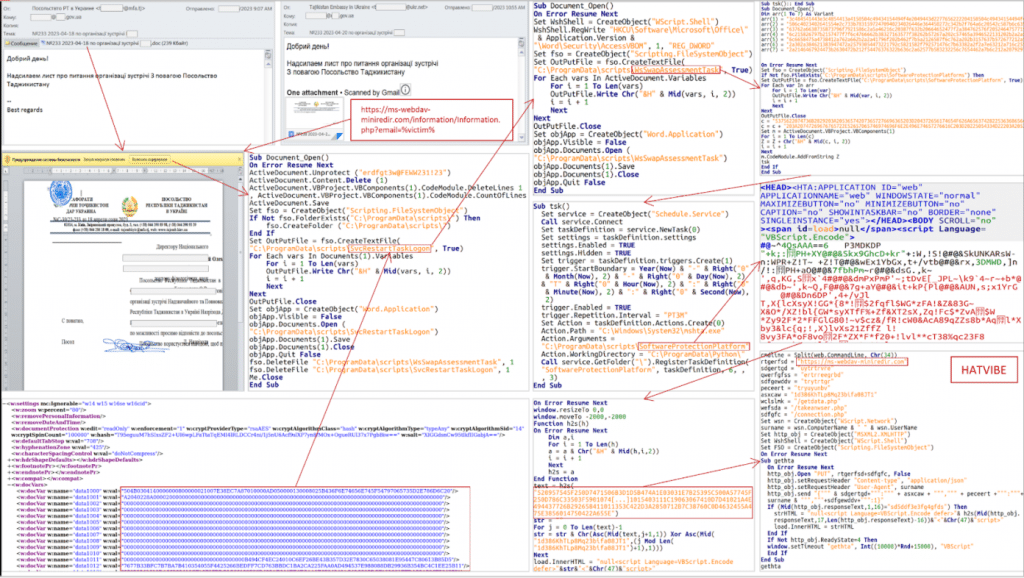CERT-UA has identified and addressed a cyber attack on the government information systems of Ukrainian governmental state bodies.
Through investigation, it was discovered that the department’s email address received communications on April 18, 2023, and April 20, 2023, appearing to originate from the authentic email account of the Embassy from Tajikistan (In Ukraine).
Weaponized DOCX File
Suspected to be a result of the compromised state of the embassy, these emails comprised an attachment in the form of a document that contained a macro in the initial case while referring to the same document in the later incident.

When the document is downloaded, and its macro is activated, it creates and opens a DOCX file called “SvcRestartTaskLogon” with a macro that generates another file with the “WsSwapAssessmentTask” macro.
While it also includes a “SoftwareProtectionPlatform” file categorized as HATVIBE, which can load and execute additional files.
During the course of technical investigation, it was documented that on April 25, 2023, supplementary programs were generated on the computer, possibly facilitated by HATVIBE, under uncertain circumstances.
Here below, we have mentioned those additional generated apps:-
- LOGPIE keylogger
- CHERRYSPY backdoor
The files are created with Python and secured with PyArmor, while the “pytransform” module, providing encryption and code obfuscation, is further safeguarded with Themida.
The STILLARCH malware is employed for searching and exfiltrating files, including data from the LOGPIE keylogger, with file extensions such as:-
- .~tmp
- .doc
Further analysis of infrastructure and associated data determined that the group’s targets include organizations from various countries engaging in espionage activities under the code name UAC-0063, which have been monitored since 2021.
To minimize the vulnerability scope, it is advisable to limit user accounts from executing “mshta.exe,” Windows Script Host (“wscript.exe,” “cscript.exe”), and the Python interpreter, thereby reducing the potential attack surface.
InfoSec tools | InfoSec services | InfoSec books



